Institute For Software Integrated Systems
-
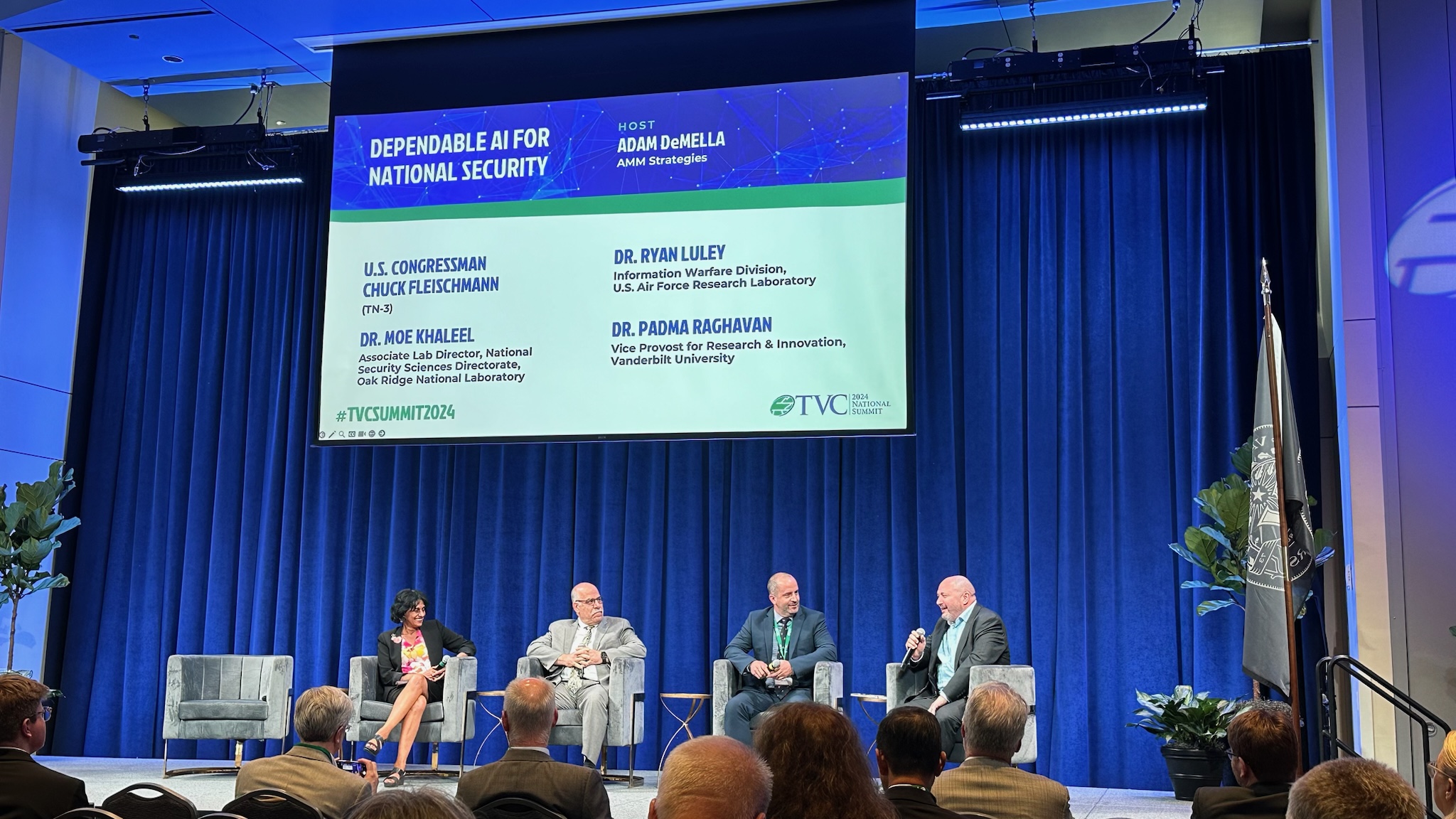
Tennessee institutions partner to develop dependable AI for national security applications
Vanderbilt University and the Department of Energy’s Oak Ridge National Laboratory announced a partnership to develop training, testing and evaluation methods that will accelerate the Department of Defense’s adoption of AI-based systems in operational environments. Read MoreMay 30, 2024
-

Vanderbilt researchers receive $2 million ARPA-H contract to improve software security in medical devices
Vanderbilt Department of Computer Science researchers Kevin Leach and James Weimer have won a $2 million award from the Advanced Research Projects Agency for Health to develop technology aimed at improving software security in medical devices like insulin pumps, pacemakers and stroke predictors. This is the first award Vanderbilt has received from ARPA-H, an agency within the National Institutes of Health with a mission to support “high-impact” solutions for pressing health care needs. Read MoreMay 20, 2024
-

U.S. Senate confirms Schmidt to lead operational testing and evaluation for the Department of Defense
Douglas Schmidt, Cornelius Vanderbilt Professor of Computer Science, has been confirmed to become Director of Operational Test and Evaluation for the Department of Defense following a full vote by the U.S. Senate on Feb. 29, 2024. Read MoreMar 6, 2024
-

Vanderbilt achieves NSA designation as a Center of Academic Excellence in Cyber Research
The U.S. National Security Agency (NSA) has designated Vanderbilt University as a Center of Academic Excellence in Cyber Research, positioning the university as a premier institution for cyber-related education and innovation. Read MoreJan 24, 2024
-

Vanderbilt team leads $6.89 million DARPA grant to train cyber agents against attacks
Daniel Balasubramanian, a senior research scientist at Vanderbilt’s Institute for Software Integrated Systems, will lead a four-year $6.89 million grant from the Defense Advanced Research Projects Agency to create realistic network environments used to train cyber agents to counter advanced and persistent cyber threats. Read MoreDec 14, 2023
-

NIH grant supports wearable technology system to improve recovery from leg fractures
Karl Zelik is using wearable technology to explore better patient recovery methods from shinbone fractures and the surgeries required to repair them. The research team, including Peter Volgyesi, has received $2.7 million from the National Institutes of Health. Read MoreNov 21, 2023
-
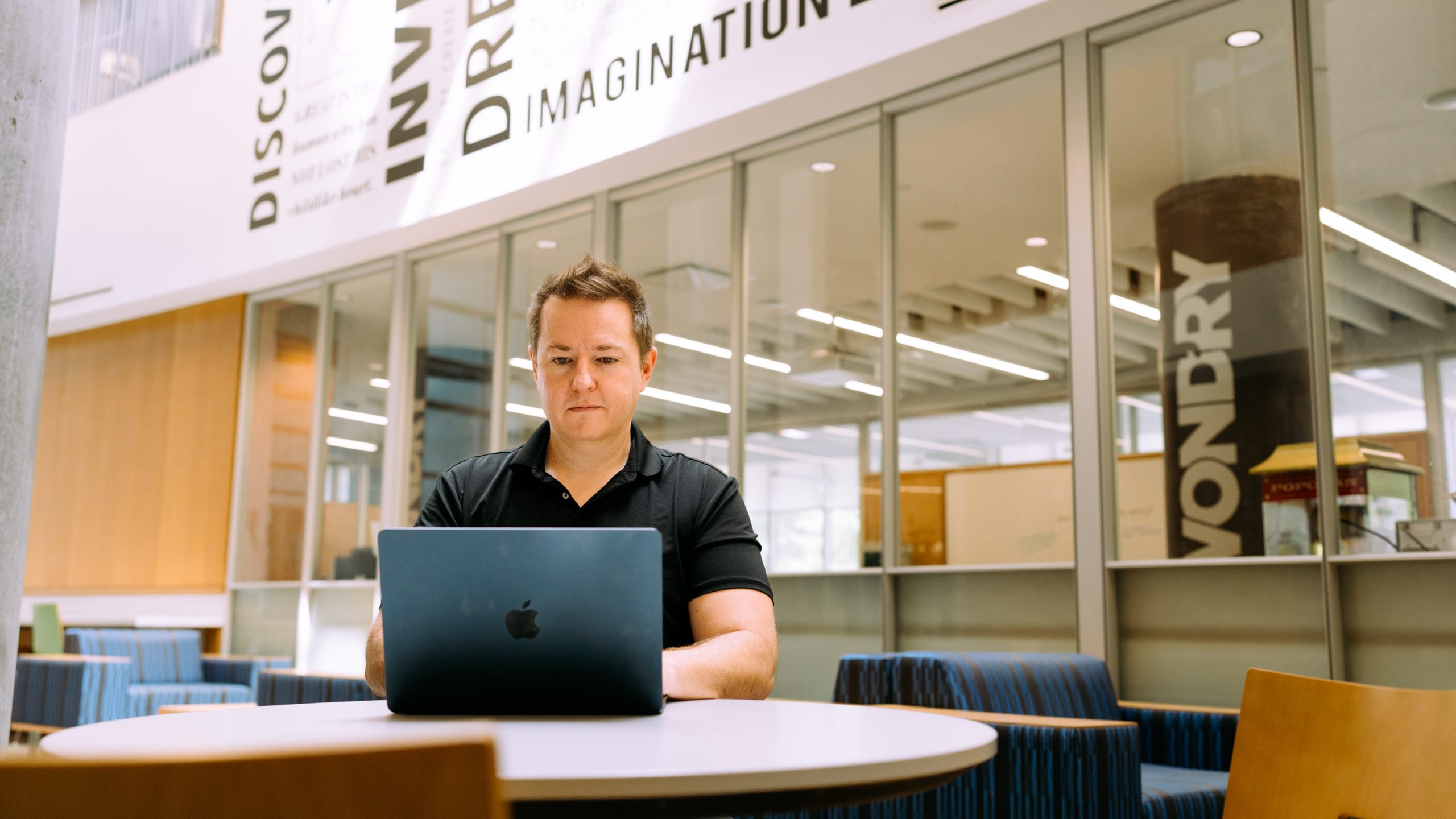
Jules White appointed to senior advisor role in Office of the Chancellor
Distinguished computer scientist Jules White has been named senior advisor to Chancellor Daniel Diermeier for generative AI in education and enterprise solutions. His appointment builds on Vanderbilt’s growing reputation as a world leader in innovation within the generative AI field. Read MoreNov 16, 2023
-

Interdisciplinary team develops open-access computer programming course for high school teachers
A modular, open-access curriculum created at Vanderbilt that’s designed to expand the ability of high school teachers to use technology in learning offers an engaging introduction to advanced topics that are currently accessible only to computer science majors in college. Read MoreNov 8, 2023
-
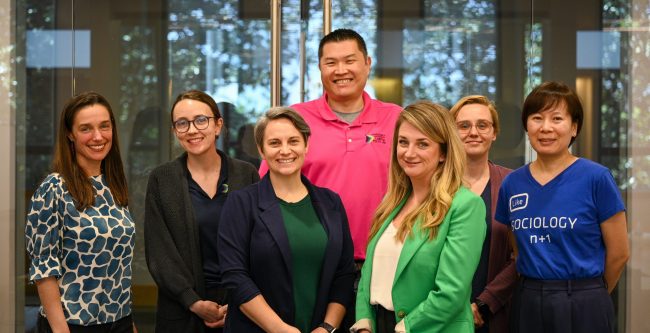
Vanderbilt launches Center for Research on Inequality and Health to study causes and consequences of health-related inequalities
Supported by Discovery Vanderbilt and a collaboration between the College of Arts and Science and the School of Nursing, the center will deepen society’s understanding of the causes and consequences of health-related inequalities. An event marking the center’s launch will take place on Monday, Sept. 18. Read MoreSep 6, 2023
-
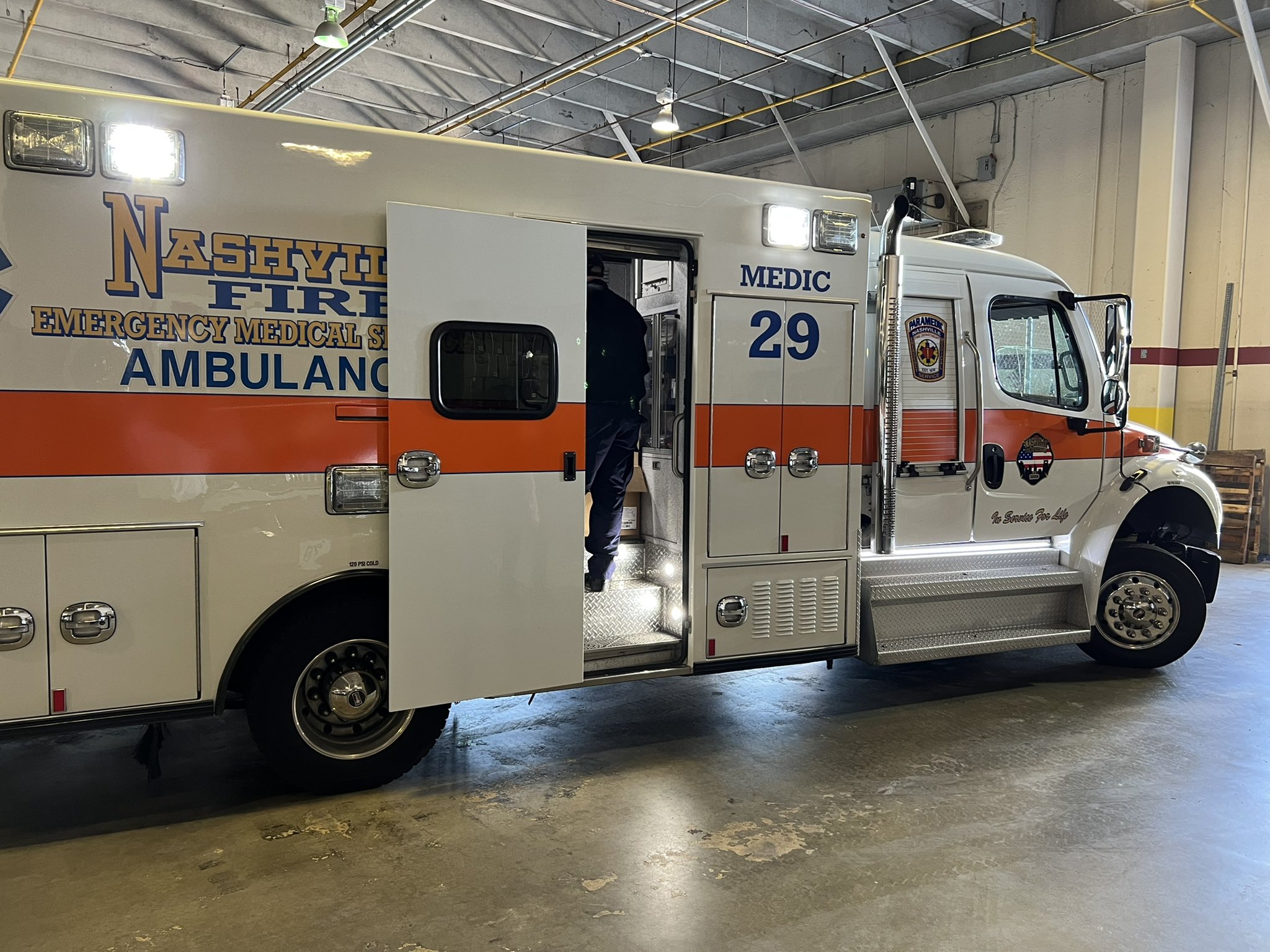
Vanderbilt researchers explore AI technology to help optimize Nashville emergency services
Vanderbilt's Meiyi Ma, Jules White and Ayan Mukhopadhyay research focuses on integrating artificial intelligence and internet-of-things technology to improve operational efficiencies in sprawling and complex environments like the city of Nashville. Read MoreNov 14, 2022
-

Artificial intelligence researchers win international “social good” award for tool designed to optimize childhood vaccinations in Nigeria
A team of Vanderbilt computer scientists, working in collaboration with Google Research and a global aid organization, HelpMum, received top honors in the “social good” category for a paper describing a new tool designed to optimize childhood health and wellness in Nigeria at the 2022 International Joint Conferences on Artificial Intelligence Organization (IJCAI). Institute... Read MoreJul 29, 2022
-

Vanderbilt-developed gunshot detection technology leads to arrest in Las Vegas shooting
Gunshot detection technology developed by Vanderbilt engineers and commercialized by a longtime research partner recently helped lead to an arrest in a fatal shooting in Las Vegas. Read MoreJan 10, 2022
-
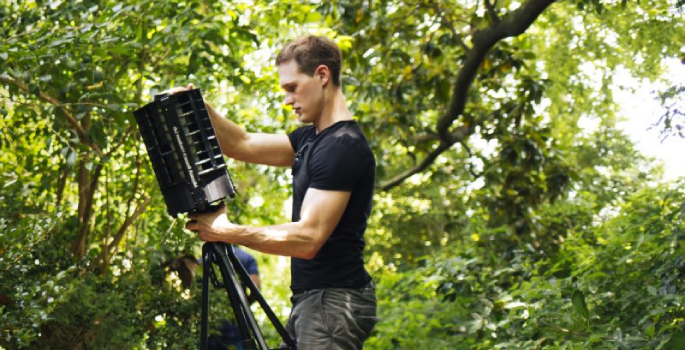
Vanderbilt-led team selected by NSF Convergence Accelerator to continue developing predictive technology against biothreats
Partnering with Microsoft and leading biologists, epidemiologists, public health experts and computer scientists, Vanderbilt’s Janos Sztipanovits will lead a $5 million cooperative agreement to create a data and AI platform that detects and predicts emerging public health threats. Read MoreSep 23, 2021
-

$2.5 million NASA project will develop and test safety management for ‘air taxis’
Multi-university team tackles safety systems for autonomous eVTOLs Vanderbilt engineers are part of a NASA-funded, multi-institution effort to develop safety systems for a mode of transportation that doesn’t exist yet—small, commercial, autonomous planes that move people by air between locations in large, crowded cities. The task is a formidable one with machine learning at its... Read MoreJun 28, 2021
-

$2.5 million NASA project will develop and test safety management for ‘air taxis’
Multi-university team tackles safety systems for autonomous eVTOLs Vanderbilt engineers are part of a NASA-funded, multi-institution effort to develop safety systems for a mode of transportation that doesn’t exist yet—small, commercial, autonomous planes that move people by air between locations in large, crowded cities. The task is a formidable one with machine learning at its... Read MoreJun 28, 2021
-
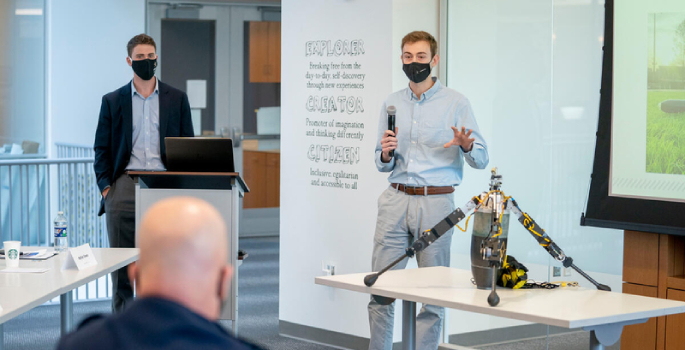
Space Force Gen. John W. “Jay” Raymond visits Vanderbilt, laying groundwork for future partnership
United States Space Force Chief of Space Operations Gen. John W. "Jay" Raymond recently visited Vanderbilt to learn about the pioneering aerospace engineering projects at the university’s research institutes and trans-institutional programs. Read MoreMay 27, 2021
-

Vanderbilt trans-institutional team shows how next-gen wearable sensor algorithms powered by machine learning could be key to preventing injuries that sideline runners
An interdisciplinary team of researchers led by Karl Zelik explores how wearable sensor technology can monitor bone stress in runners, developing a new multi-sensor algorithm that could save runners from months of pain and recovery time. Read MoreOct 28, 2020
-
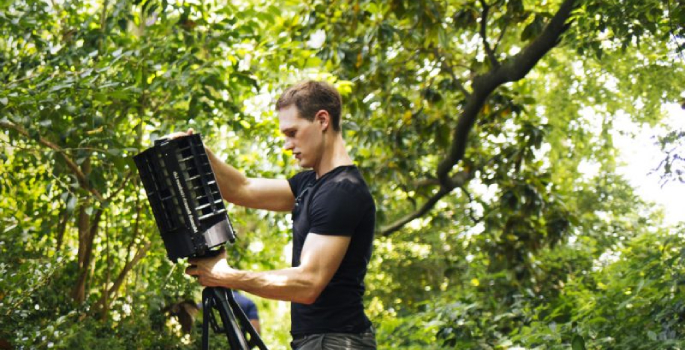
Vanderbilt leads data effort for early prediction of pathogen outbreaks
NSF Convergence grant dovetails with Microsoft PREMONITION program expansion Vanderbilt engineers are leading the academic component of a massive Microsoft project that combines robotics, genomics, big data collection—and mosquitos—to monitor the environment and detect potential pandemics and other threats before they cause widespread outbreaks. Microsoft announced today expansion of its PREMONITION program and a large-scale... Read MoreSep 22, 2020
-

Rewriting the evolution of complex software systems
All software is not created equal. At one end are apps on a smartphone and consumer-facing programs for which periodic updates to fix bugs and security issues are routine, like replacing an air conditioning filter or getting an annual flu shot. At the other end are large, complex software systems such as software used in... Read MoreAug 20, 2020
-

Vanderbilt researcher optimizing public transit with Artificial Intelligence
Assistant Professor of Electrical Engineering and Computer Science Abhishek Dubey is applying artificial intelligence to address how the essential public transit systems of Nashville and Chattanooga—WeGo Public Transit and CARTA, respectively—can maintain social distancing protocols and proactively plan bus routes and schedules in response to COVID-19. Read MoreJul 10, 2020